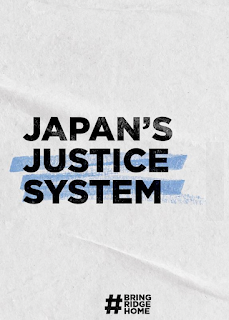JAPAN'S JUSTICE SYSTEM
LACK OF MEDICAL EVALUATION
Knowing he suffered a medical emergency, Lt. Alkonis requested medical attention. Despite his persistent requests, Lt. Alkonis did not receive any medical attention at the scene of the accident or while detained.
(In CA, if a driver involved in a traffic accident is being taken into custody, a medical evaluation is required.)
POLICE DETENTION
As the prosecution begins work on building an investigation, the accused can be held in police detention for up to 23 days.
During the detention, only the prosecution has the opportunity to interrogate the accused for up to 8 hours per day in efforts to build their investigation against the them.
THE INVESTIGATION
With civil responsibility tied to the criminal proceedings (in the US they are separate) the prosecution’s goal is to build an investigation that will result in the best outcome for them.
The purpose of interrogation is to extract a confession. In Lt. Alkonis’s case extended interrogations included leading questions, persuasion, lack of an adequate translator, and no right to a lawyer present.
THE TRIAL
Evidence supporting anything other than the charges against the accused are not presented in court. The prosecution has the power to dictate to the defense what can be presented as evidence.
In Lt. Alkonis’s case this means that any evidence that demonstrates anything other than negligence was never presented in court. Official diagnoses received after his release from police detention were not allowed to be presented as evidence.
GOMENASAI
A formal Japanese-language apology for causing offense or damage.
Lt. Alkonis feels great sorrow for the family of the victims. In keeping with Japanese customs, he immediately wrote letters to express his condolences and offered gifts to honor the family.
Lt. Alkonis fulfilled every request of the victims’ family, including the largest private gomenasai settlement by a U.S. service member in Japan's history - $1.65 million USD.
